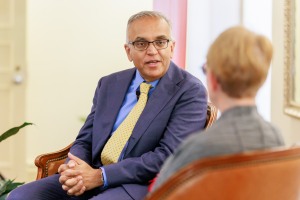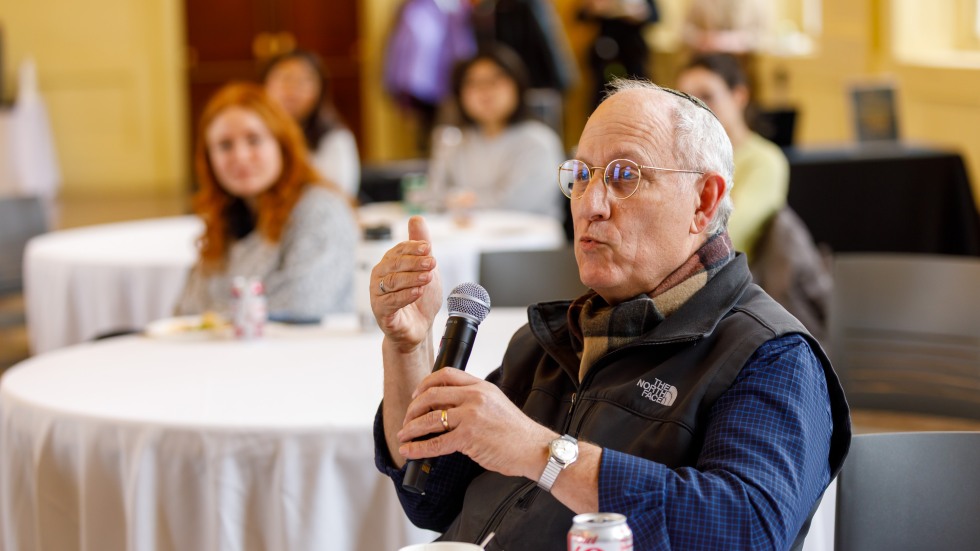On February 20, at Alumnae Hall, Congressman Gabe Amo of Rhode Island’s First Congressional District joined Dean Ashish K. Jha for the latest installment of the Dean’s Conversation Series—a discussion of public health, policy and politics.
While Congressman Amo’s path to Congress was atypical, his experience as the son of immigrant parents is not. His father, originally from Ghana, and his mother, from Liberia, immigrated to Rhode Island in the early 1980s.
“My father owned a liquor store and my mother worked as a nurse in nursing homes—labor-intensive jobs often taken on by immigrants,” he said. “As a union member, my mother instilled in me a strong work ethic and an awareness of community. Spending time in break rooms with her colleagues and seeing the patients they cared for gave me an early sense of responsibility.”
As a 14-year-old Moses Brown student, Amo volunteered for the congressional campaign of Patrick Kennedy, who held the First Congressional seat from 1994 to 2010. Amo’s first full-time job was as an organizer for Sheldon Whitehouse’s 2006 Senate campaign. From there, he became immersed in politics, working on President Obama’s 2008 and 2012 campaigns, and serving in the administrations of Presidents Obama and Biden as well as Rhode Island Governor Raimondo.
When the First District seat became available, Amo was working as deputy director of the White House Office of Intergovernmental Affairs. “I served as President Biden’s liaison to mayors and governors, leveraging the resources of the presidency to support them in serving their communities,” he said. “At the White House, you’re constantly thinking about the entire country, which makes the stakes higher and the urgency of the work even greater. It’s a mission-oriented place where every decision carries national significance.”


